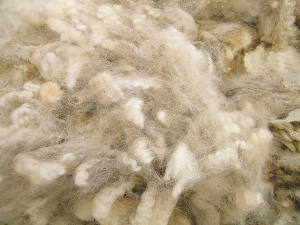Wools of New Zealand and PGG Wrightson team up to boost wool supply chain efficiency
Wool farmers are hoping that efforts by two leading companies to develop a more efficient supply chain would eventually boost farmgate returns.
 Industry initiatives are underway to unify fragmented efforts to return the industry to its former glory.
Industry initiatives are underway to unify fragmented efforts to return the industry to its former glory.
OPINION: Wool farmers believe the future of strong wool still holds promise.
Industry initiatives are underway to unify fragmented efforts to return the industry to its former glory. The Government is also signalling its support.
But for the wool sector to fully recover from its doldrums, farmer engagement is key.
That’s why the recent announcement by leading wool companies Wools of New Zealand and PGG Wrightson to work on improving logistics gives the wool sector new impetus.
As wool traders, both Wools of NZ and PGW have realised that operating half-empty shops is a loss for everyone – traders and farmers.
Wools of NZ, a farmer-owned co-operative, and PGW have decided to look at collaboration to reduce costs, improve asset utilisation and help secure a stronger future for wool growers and the sector.
Their decision to share logistics where appropriate is in response to the overcapacity across New Zealand’s wool logistics infrastructure following a long-term decline in production volumes, which has driven up operating costs. The move comes as the Wool Alliance is announced – wool industry organisations working together to revitalise the strong wool sector.
As Federated Farmers meat and wool chair Richard Dawkins points out, a move towards a more efficient supply chain is worth celebrating.
However, he quickly adds that this announcement is a discussion about efficiencies in a declining sector and controlling costs. Ideally, the sector would be celebrating market driven premiums, profitability across the supply chain and subsequent returns back behind farmgate.
Collaboration between wool means fewer half-empty wool stores, and better wool handling and the whole system becomes more efficient and cost-effective.
Wool farmers are hopeful that this initiative will save costs and improve grower returns.
And these cost savings can also be invested to realise higher value end uses and further supply chain efficiencies.
To progress as a sector, a combination of corporate and farmer profitability is essential and greater collaboration among key players will be key.
Let’s hope that this time the wool sector unites to deliver tangible benefits for all stakeholders.
Fonterra’s impending exit from the Australian dairy industry is a major event but the story doesn’t change too much for farmers.
Expect greater collaboration between Massey University’s school of Agriculture and Environment and Ireland’s leading agriculture university, the University College of Dublin (UCD), in the future.
A partnership between Torere Macadamias Ltd and the Riddet Institute aims to unlock value from macadamia nuts while growing the next generation of Māori agribusiness researchers.
A new partnership between Dairy Women’s Network (DWN) and NZAgbiz aims to make evidence-based calf rearing practices accessible to all farm teams.
Despite some trying circumstances recently, the cherry season looks set to emerge on top of things.
Changed logos on shirts otherwise it will be business as usual when Fonterra’s consumer and related businesses are expected to change hands next month.

OPINION: Here w go: the election date is set for November 7 and the politicians are out of the gate…
OPINION: ECan data was released a few days ago showing Canterbury farmers have made “giant strides on environmental performance”.